Youth Advocacy in Action (Spring 2023)
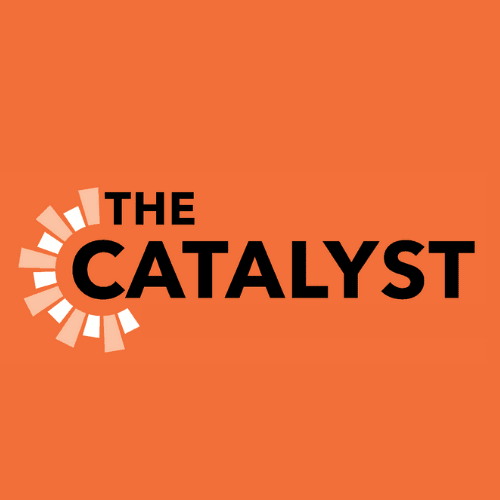
It’s About the Long Game
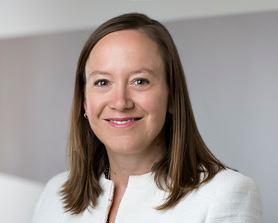 “There’s the part of advocacy that’s campaigns and big wins, and then there’s the steady drumbeat of advocacy that doesn’t make headlines. The only time it makes headlines is when you take your eye off the ball and lose.”
“There’s the part of advocacy that’s campaigns and big wins, and then there’s the steady drumbeat of advocacy that doesn’t make headlines. The only time it makes headlines is when you take your eye off the ball and lose.”
That’s what my first boss at PAI used to say about advocacy work. It’s a sentiment that still rings true today—especially the steady drumbeat part—about how PAI and our partners approach our work to ensure access to quality sexual and reproductive health services for women and girls worldwide. It rings true for our efforts in Mexico, the focus of our latest issue of The Catalyst.
PAI has had a long presence in Latin America and the Caribbean. And even though the region has experienced a significant decrease in foreign aid over the last 15 years or so, organizations on the ground continue to persevere to effect change. Our partners in Mexico, Observatorio de Mortalidad Materna (OMM) and Elige, are among those changemakers.
As with all our partners around the globe, PAI takes the lead from OMM and Elige. We ask them which policies aren’t being implemented and where there are opportunities for advocacy. This informs the mutual agenda we shape together. Our partners are putting some of the country’s most marginalized groups—young and indigenous people—in the driver’s seat to make sure the government and health providers are indeed carrying out policies on the books. And they’ve created a groundswell that lets leaders know what needs to be done to implement a national health policy. The vision had to come from those who know their needs and communities best.
PAI’s work with our partners in Mexico demonstrates that advocacy doesn’t end once a policy win is achieved. Alongside our partners and you, our donors, we must be committed to sustained advocacy to truly fulfill our promises to all women and girls. We must continue that steady drumbeat.
We’re in it for the long game. We value the importance of both celebrating our hard-fought victories and also anticipating potential attacks on sexual and reproductive health and rights. So, as my old boss used to say, we keep our eye on the ball. We don’t let up. And with your support, we keep pursuing the kind of advocacy that may not make headlines but creates lasting change for women and girls in Mexico and around the world.

Suzanne Ehlers
President and CEO
PAI Partners Work to Address Gaps in Access for Youth and Indigenous Women and Girls
In 2015, advocates celebrated a big win for women and girls in Mexico: in response to the country’s high teenage pregnancy rate, leaders passed a National Strategy for Adolescent Pregnancy Prevention to strengthen young people’s access to sexual and reproductive health care, guarantee access to the full range of birth control options, provide accurate sexual education to youth and more.
However, in the years since, Mexico’s youth—who are among the most marginalized in the country—continue to face significant obstacles to accessing quality sexual and reproductive health services.
PAI is working to change that by supporting our partners in Mexico, Observatorio de Mortalidad Materna (OMM) and Elige, as they carry out innovative, targeted strategies with national and state governments to address gaps in services. Their goal? To help leaders understand young people’s needs and hold health providers accountable in delivering quality family planning services.
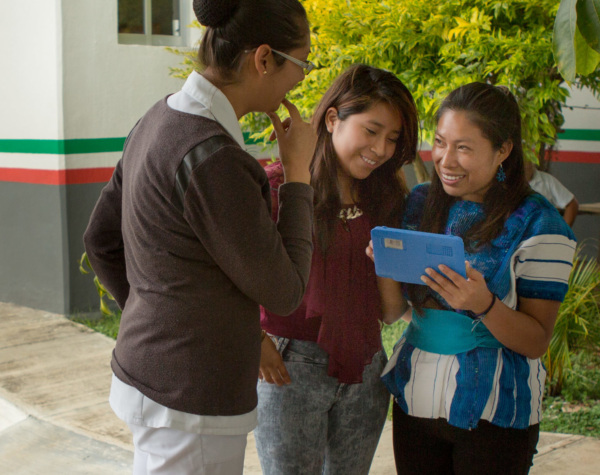
And the need for these services is urgent. The teen pregnancy rate in Mexico is three times that of the United States and remains one of the highest for countries with similar levels of economic development.
These disparities are amplified in the southern states of Mexico like Chiapas, the country’s poorest state and home to its third-largest indigenous population. Compared to young women nationally, adolescent girls in Chiapas have more children on average and have a higher unmet need for birth control. This reality can be harsher for young indigenous women and girls, who have poorer reproductive health outcomes and are twice as likely to die during pregnancy or childbirth compared to their nonindigenous peers.
Unfortunately, the national pregnancy prevention strategy that could help reverse these trends isn’t being consistently implemented across the country, which leaves providers unprepared to deliver youth-friendly sexual and reproductive health care. This includes making it easy for teens to access clinics and health care providers, offering confidential spaces for them to receive counseling and care, stocking clinics with their preferred contraceptive methods and having educational materials that speak to their needs.
That’s where OMM and Elige come in. They’re helping civil society organizations and government officials at the state and regional levels carry out the national policy on the ground so that young people have the access to information and care they deserve. Specifically, Chiapas-based OMM is taking the innovative approach of training indigenous youth to visit state health clinics to document whether young people are able to access the health care they desire, as well as the availability of all birth control options. These youth leaders then join OMM at meetings with government officials to report their observations and determine ways to improve access for young people.
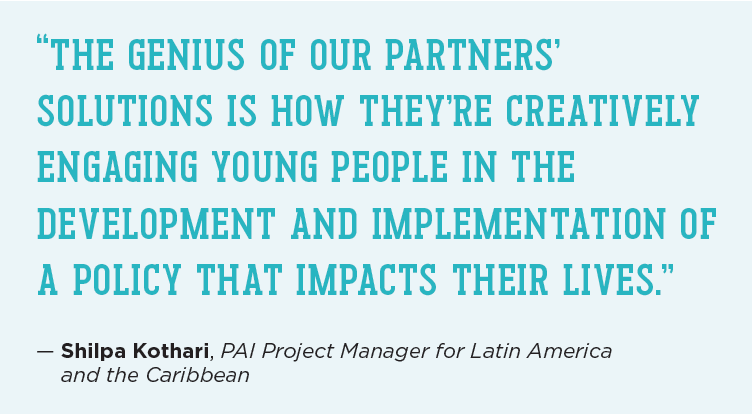
Meanwhile, Elige is advising and supporting young people from diverse backgrounds to elevate their needs at the national level. This includes providing them with opportunities to directly interact with government officials and civil society organizations working on this issue.
Elige also engages with local government and civil society in Campeche, Mexico City, Quintana Roo, Tabasco and Yucatan to ensure that concrete, locale-specific improvements in the availability and quality of information and services for young people are prioritized in the implementation of the national strategy.
Elige and OMM are turning a significant policy win into meaningful advancements toward better access to sexual and reproductive care for Mexico’s young women and girls.
“The genius of our partners’ solutions is how they’re creatively engaging young people in the development and implementation of a policy that impact their lives,” said Shilpa Kothari, PAI project manager for Latin America and the Caribbean. “They are including voices not usually heard in conversations about sexual and reproductive health and rights. It’s a compelling example of advocacy.”
After finishing medical school in Mexico City, Dr. Hilda Eugenia Argüello Avendaño headed for Chiapas to complete a requirement to provide free medical care for a year as a social service.
In Chiapas, Hilda reached a turning point in her career that eventually landed her at Observatorio de Mortalidad Materna (OMM), overseeing its efforts to reduce maternal mortality and advance sexual and reproductive rights in Mexico.
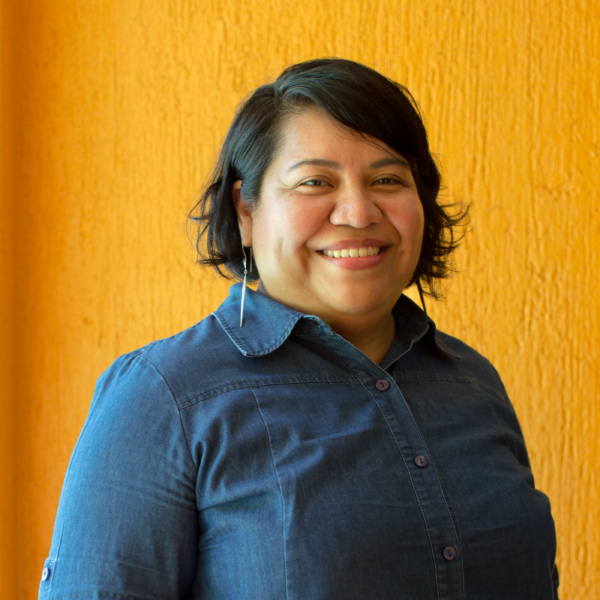
Like most physicians, Hilda was very clinical. Diagnose the problem. Solve it. Move to the next patient. But at the clinic where she worked, she soon learned that her medical knowledge alone could not effectively address the health challenges faced by families in Chiapas.
She recalls, for instance, a father who brought his young son in to check on a painful skin condition on his feet. Hilda determined the child was allergic to the rubber boots he wore to walk to the clinic. Her diagnosis left the boy’s father at a loss. His family had no choice but to wear boots because it protected them from snakes near their home.
This was when Hilda and her team decided that the presence and knowledge of a doctor didn’t solve these health problems. “I really had to think whether that clinical job was most important,” she says, “or to change the conditions in which people live so they can have access to health.”
She decided to pursue the latter and upended the career she had just begun. Hilda returned to school to study social and medical anthropology. She eventually joined OMM to oversee research on and monitoring of public policies, before she took the lead as the organization’s technical secretariat.

It was then that Hilda and her team decided to adopt young peoples’ access to sexual and reproductive health care—and holding providers accountable—as a new mandate. Under this mandate and with PAI’s support, OMM developed youth-led monitoring to assess the availability of birth control and the quality of services provided to young people and local clinics. She says the effort is helping normalize the pursuit of evidence and the right to ask questions for young people.
“That’s important,” Hilda says. “We’re not going to speak for them. They have to speak for themselves.”

How One Family is Making a Difference in the Lives of Women
During a year of travel after college, Meryl Katz spent time in Micronesia, where she came to know a 40-year-old woman who had 19 children. Most of them, including her daughters, were away at school in Guam. Except for one.
That daughter helped care for her younger siblings. More than two decades later, Katz still wonders why she was chosen to stay home. How did her life unfold compared to that of her siblings? She also thinks about the economic choices their mother made for her children—as well as the choices she may not have had for her own life.
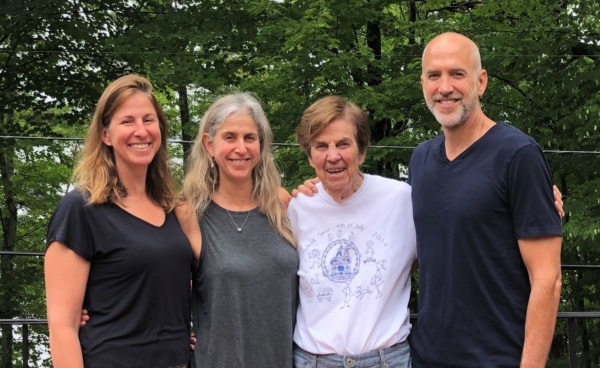
Katz’s experience with the family remains for her a powerful reminder of how women’s reproductive lives influence their opportunities and overall wellbeing. “A woman’s ability to choose when and how she’s going to have children is one of the single great determiners of a family’s economic health,” said Katz, who lives in San Francisco and runs a wholesale import business.
That sentiment fuels Katz’s commitment to women’s sexual and reproductive rights and her support of PAI through the Sheldon and Audrey Katz Foundation, her family’s Washington, D.C. philanthropy. Named for her parents, it was established 20 years ago to support the arts but has since expanded to help organizations addressing women’s issues and environmental justice. Katz oversees the former, which includes supporting PAI with a mix of general operating support and giving specifically to PAI’s work in Mexico.
“I like in particular that PAI’s staff is focused on information gathering,” Katz said. “They get the data and provide it to lawmakers and
decisionmakers… to effect broader policy here and abroad that makes a difference in women’s lives.”
As a donor, Katz said she prefers being able to have an impact on a specific population, and in this case, the youth that Elige targets, who are “often overlooked.” She also appreciates contributing to work in a region that has seen less investment in development than Africa and Asia. “We were able to continue to help this work grow.”
Whether it’s ensuring leaders implement policies aimed at young women in Mexico or helping Middle Eastern women become politically active, the issues Katz supports share a common theme: “It’s about women’s advocacy and women charting the course of where their lives are going to go,” she said. “At the end of the day, a lot of it comes down to women having the right to choose when and how to have children.”
We are fighting back against the onslaught of harmful policies that discard reproductive rights.
Stay informed about the issues impacting sexual and reproductive health and rights.
